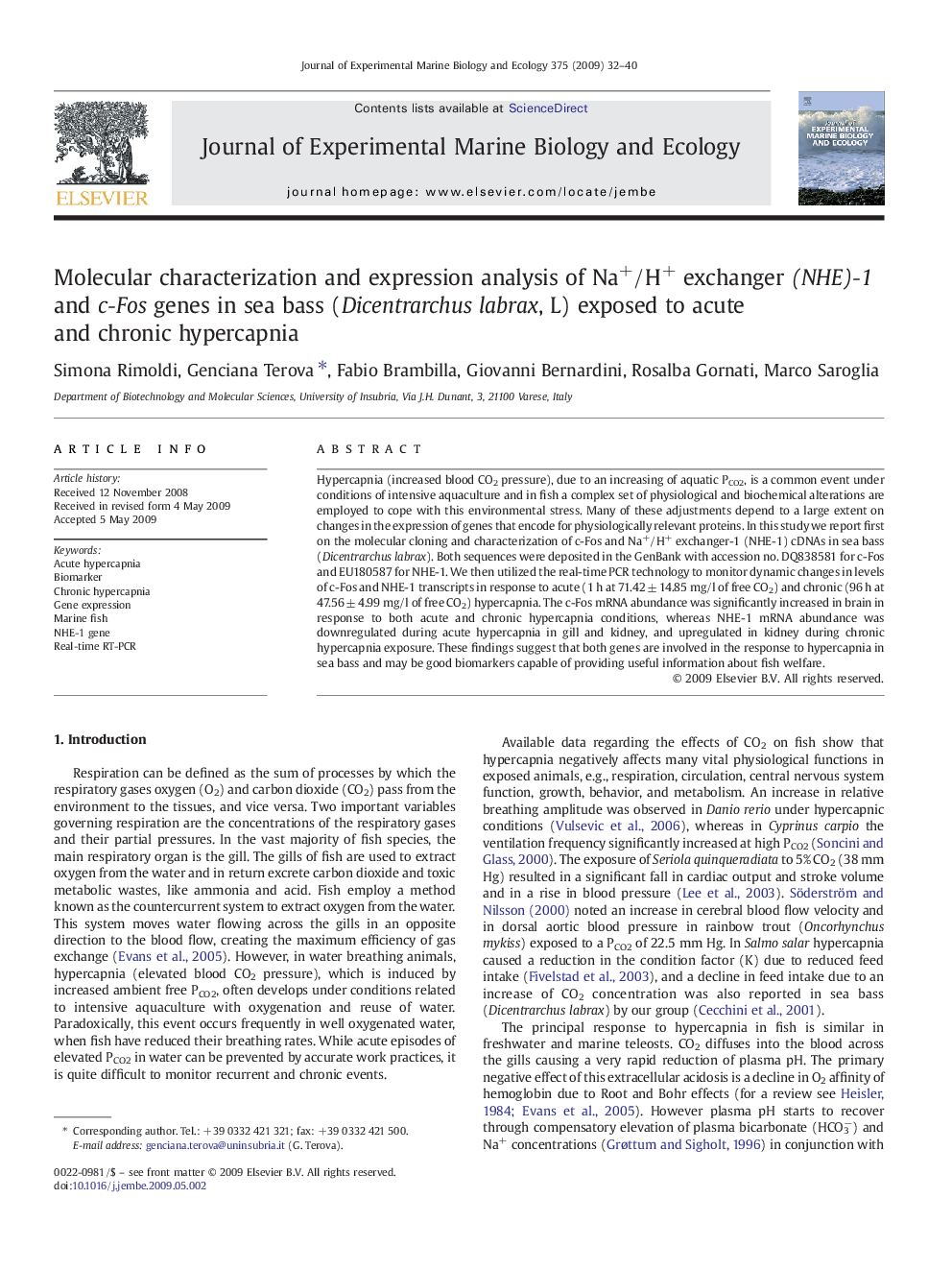| Article ID | Journal | Published Year | Pages | File Type |
|---|---|---|---|---|
| 4396926 | Journal of Experimental Marine Biology and Ecology | 2009 | 9 Pages |
Hypercapnia (increased blood CO2 pressure), due to an increasing of aquatic PCO2, is a common event under conditions of intensive aquaculture and in fish a complex set of physiological and biochemical alterations are employed to cope with this environmental stress. Many of these adjustments depend to a large extent on changes in the expression of genes that encode for physiologically relevant proteins. In this study we report first on the molecular cloning and characterization of c-Fos and Na+/H+ exchanger-1 (NHE-1) cDNAs in sea bass (Dicentrarchus labrax). Both sequences were deposited in the GenBank with accession no. DQ838581 for c-Fos and EU180587 for NHE-1. We then utilized the real-time PCR technology to monitor dynamic changes in levels of c-Fos and NHE-1 transcripts in response to acute (1 h at 71.42 ± 14.85 mg/l of free CO2) and chronic (96 h at 47.56 ± 4.99 mg/l of free CO2) hypercapnia. The c-Fos mRNA abundance was significantly increased in brain in response to both acute and chronic hypercapnia conditions, whereas NHE-1 mRNA abundance was downregulated during acute hypercapnia in gill and kidney, and upregulated in kidney during chronic hypercapnia exposure. These findings suggest that both genes are involved in the response to hypercapnia in sea bass and may be good biomarkers capable of providing useful information about fish welfare.
